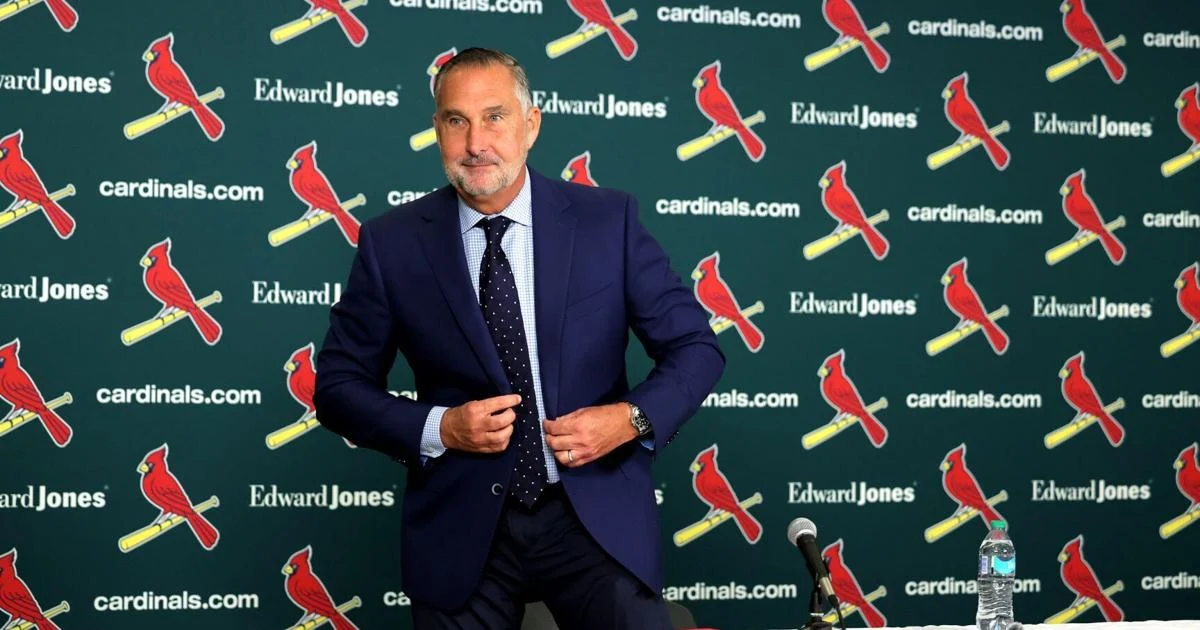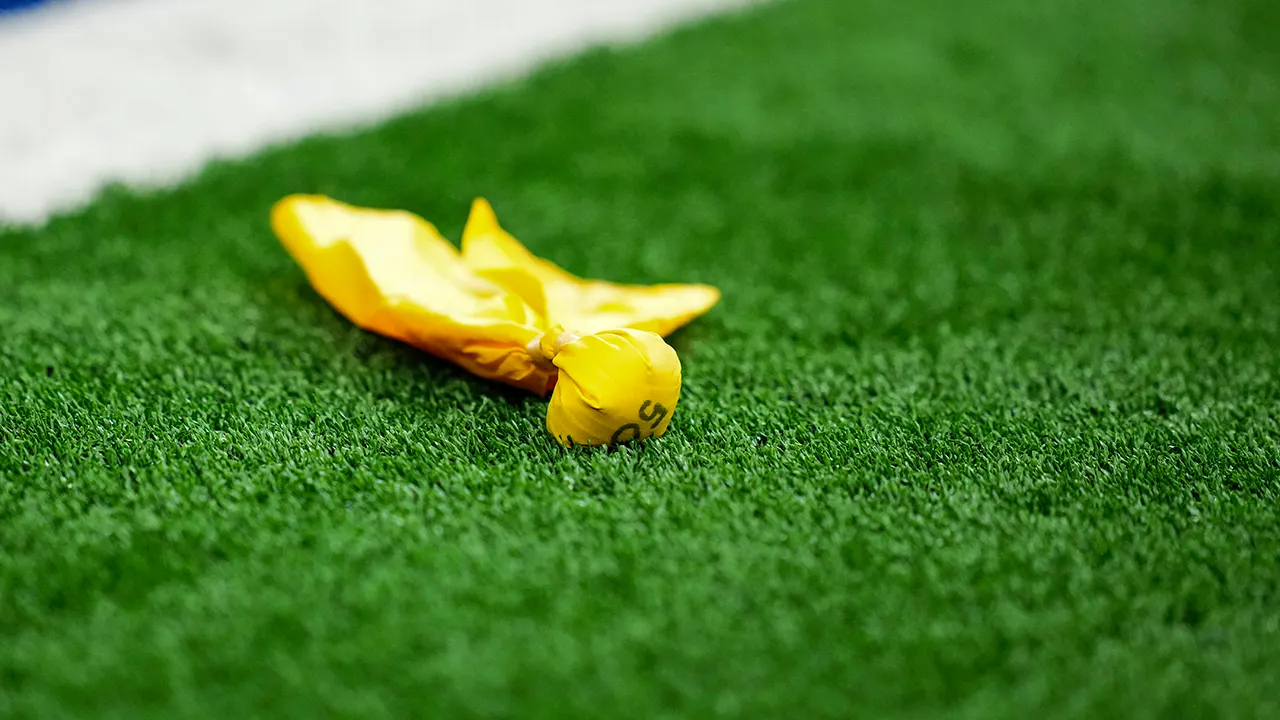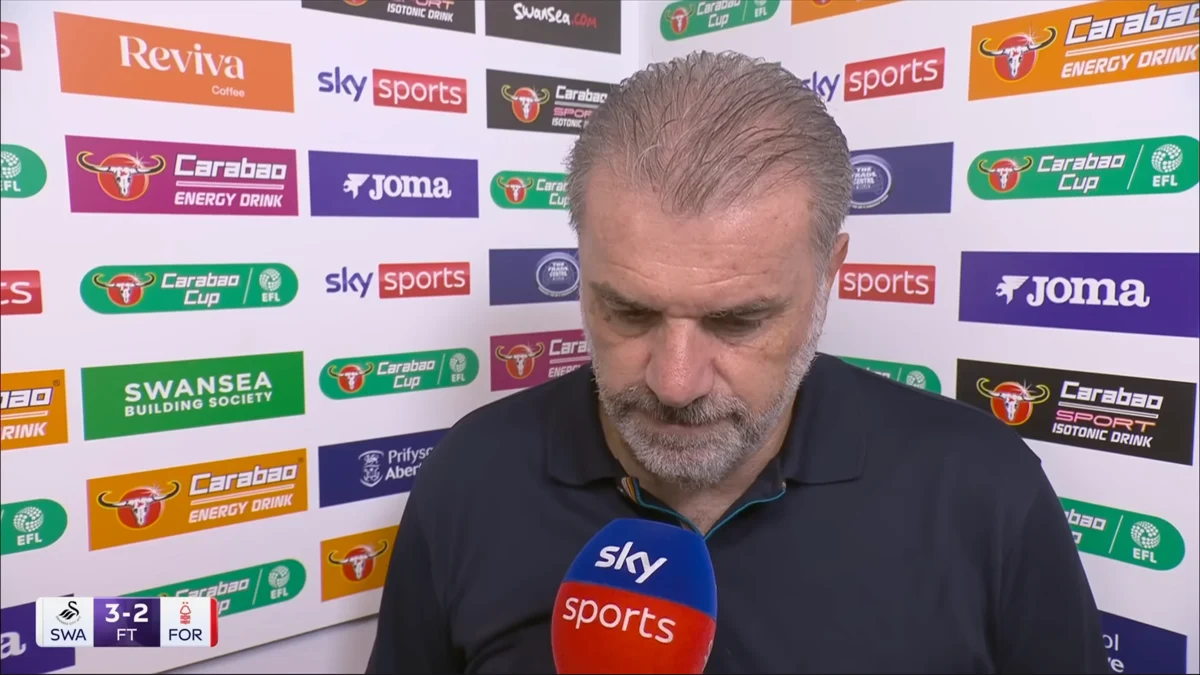
One of the first things John Mozeliak said in his last news conference as the longtime leader and public-facing frontman for the St. Louis Cardinals’ baseball operations was how he, too, after all these years recognized the need to hear from someone else.
It was no longer background noise but in his ear.
“I’ve been asked over the past year: Why step down?” Mozeliak began. “And to me, it became simple. I love this job. But I also knew it was time for a change. Trying to reinvent yourself every year can be challenging. The drumbeat was getting loud — candidly, real loud — for a new voice. And I heard it. Speaking of changing: I do believe it can be a good thing, having a fresh voice, a different perspective.
“New ideas will be healthy for the St. Louis Cardinals.”
After 30 years with the Cardinals organization, the past 18 at the helm of baseball operations, Mozeliak formally said goodbye Monday afternoon during a news conference at Busch Stadium. Or, as he put it before taking the microphone: “Well, the day finally came, kids.” The event offered ownership a chance to publicly thank Mozeliak for his years of service, for guiding them through a transformative age of analytics and finances, and for delivering one World Series championship, two National League pennants and five appearances in the National League Championship Series.
And it gave him a chance to thank colleagues, managers, coaches, support staff, and members of the media, including the late Hall of Fame baseball writer Rick Hummel.
The news conference also set the stage — ceremonially and quite literally — for Tuesday’s introduction of Chaim Bloom as the new president of baseball operations.
After Mozeliak spoke, examples of the Cardinals’ next direction were all around or near the room. Bloom and manager Oli Marmol huddled privately in a corner to continue discussions about the upcoming offseason and the year ahead. Members of Bloom’s leadership team, including assistant general manager Rob Cerfolio and executives who will remain from Mozeliak’s group, were in attendance.
The traditional after-season meetings with Marmol’s staff and player evaluations began Monday and resumed soon after the presser. Some of the Cardinals’ prospects from Class AAA and Class AA were at the ballpark working out and going through tests.
Change is afoot.
Not just with the messenger but the messaging and the message.
“The unique thing about the role that I had with the Cardinals is we never tried to rebuild,” Mozeliak said. “The word you may hear tomorrow may be different. But that’s for them to speak.”
After a dozen years in various front-office roles with the Cardinals that included scouting and leading the draft, Mozeliak was promoted to general manager on Halloween 2007. He became the team’s first president of baseball operations almost 10 years later, and his 18 years of overseeing that department are surpassed only by Hall of Fame innovator Branch Rickey.
Mozeliak’s tenure began with a run of 15 consecutive winning seasons and six playoff berths in the first eight years. His midseason overhaul of the bullpen and willingness to trade a leading prospect fueled the Cardinals’ surge toward the 2011 World Series championship. The MVP of that year’s World Series and NLCS was David Freese — the player acquired for Jim Edmonds in Mozeliak’s first trade as a GM.
The Cardinals had difficulty maintaining that momentum over the past 10 years as rivals caught up and competitive edges were softened and lost, especially as the club emerged from the pandemic with limited staff and altered spending. In the past three years the Cardinals saw an erosion of the farm system, two losing seasons including this one, and this summer’s precipitous drop in tickets sold, tumbling out of the top 10 for the first time in Busch III’s history.
Mozeliak was asked in the spirit of being a steward for his role how he believed he left it and the organization better for the next president.
“I hope that the people who I’ve worked (with), that I’ve had some positive influence on them,” Mozeliak answered. “Obviously, there is going to be a new regime. There’s going to be change. And there’s going to be things done maybe differently than I may have done them. That doesn’t make it right or wrong. But that’s the good thing to have that new voice.”
The Cardinals set up this season of transition a year ago with a news conference that announced Bloom would take over following the 2025 season. Mozeliak would complete the final year of his contract, which expires on Halloween. Michael Girsch moved out of the general manager role to open up that executive position for Bloom to eventually fill with his pick.
Mozeliak, however, remained the leader of baseball operations, the decision-maker and the club’s spokesperson while Bloom focused on the minor league system and limited his public comments to the Cardinals’ own publication.
That led to some awkwardness at times, Cardinals officials acknowledged in the closing months of the season. They advertised this year as focused on the future, and Mozeliak remained the public voice despite eventually not being a part of that future.
He touched on that Monday when describing what clarity the Cardinals learned about their future core by committing playing time to younger players this year.
“Probably not as clearly as we hoped, right?” Mozeliak said. “I think some players we were hoping to learn a little bit more about. But in the end, I think that’s the challenge of this offseason and what lies ahead in the future. Chaim and his team and Oli have to decide what that looks like. One takeaway I do have on this year is that a lot of younger players learned a lot. They had to drink from the fire hose. Maybe they didn’t make the right adjustment or the adjustment soon enough, but hopefully they grow from that.”
Mozeliak attended the Cardinals’ finale at Wrigley Field on Sunday as they lost, 2-0, and finished the season 78-84. All three teams that finished ahead of them in the National League Central qualified for the playoffs.
He reflected on the year and found himself cataloging how close they came.
A turning point was the trade deadline, when the Cardinals hovered at 55-55 — on the brink of the postseason race — and traded veteran relievers. They followed the blueprint set forth from the start: focusing on the future, acquiring talent for the future and reducing spending. The bullpen remained resolute despite the trades, but the team faded from contention.
Mozeliak was asked how he weighed the purpose of the season with the opportunity to push one last time under his watch by making moves for a run.
“I don’t regret anything we did this year,” he said. “We knew it was going to be difficult to try to thread this needle. If you’re looking in hindsight, would it have been smarter to try to trade some of the players that we ended up trading in the offseason? But we wanted to give our fan base some level of hope. We wanted to see if a couple of guys did click and got hot. Unfortunately, we did come up short.”
How Mozeliak’s tenure is measured in the long run will reveal itself once the irritation and swelling from this season subsides.
Mozeliak, 56, has avoided using the word “retirement,” just as he’s evaded questions from peers and press about what he’ll do in the future. He said Monday that he does not “envision” running another major league team. He expects to have some “connection to the game” in the future. His immediate plan is a vacation — maybe even without a laptop.
Asked if he plans to shepherd some of the Cardinals’ unfinished projects — such as the ongoing upgrades to the spring training facility in Jupiter, Florida — through to completion, Mozeliak said, “I don’t think so.” That initiative, many years in the making, is one example of how far Mozeliak’s influence reached within the organization and how prominent he became as a face of the franchise, especially after the departure of Albert Pujols and first retirement of manager Tony La Russa.
Even before his promotion, Mozeliak played a prominent role in modernizing the Cardinals and finding competitive edges in the draft and development that other teams eventually mimicked and then ultimately used to surpass the Cardinals. Mozeliak’s tenure stretches back to the beginning of the DeWitt ownership group, and he was present for everything from scouting Yadier Molina to drafting Pujols, trading for Adam Wainwright to re-signing Paul Goldschmidt.
Chairman Bill DeWitt Jr. began the news conference Monday by saying, “Mo’s long-term positive impact on our team has been immeasurable.”
Mozeliak ended the event with an inquiry of his own.
“The big question is,” he said, “what am I going to do to tomorrow?”
Get in the game with our Prep Sports Newsletter
Sent weekly directly to your inbox!
* I understand and agree that registration on or use of this site constitutes agreement to its user agreement and privacy policy.
Derrick Goold | Post-Dispatch
Lead baseball writer
Get email notifications on {{subject}} daily!
Your notification has been saved.
There was a problem saving your notification.
{{description}}
Email notifications are only sent once a day, and only if there are new matching items.
Followed notifications
Please log in to use this feature
Log In
Don’t have an account? Sign Up Today



